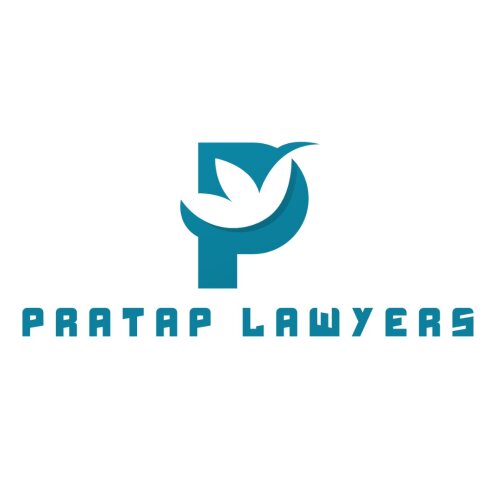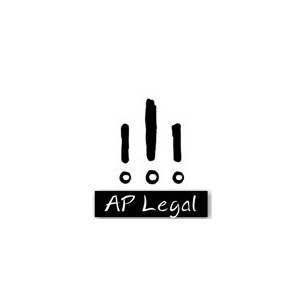Best Lawsuits & Disputes Lawyers in Fiji
Share your needs with us, get contacted by law firms.
Free. Takes 2 min.
Or refine your search by selecting a city:
List of the best lawyers in Fiji
About Lawsuits & Disputes Law in Fiji
The constitution of Fiji stipulates the basic guidelines for handling lawsuits and disputes in the country. They dictate how civil and criminal cases, including lawsuits and disputes, should be dealt with. Various laws also exist to give more specific guidance on matters such as family disputes, land disputes, and employment disputes among others. Like many other jurisdictions, Fiji recognizes both formal court litigation and Alternative Dispute Resolution (ADR) processes, such as conciliation, arbitration, and mediation, as valid dispute resolution techniques.
Why You May Need a Lawyer
In general, you might need a lawyer when you are involved in a lawsuit or a dispute that cannot be resolved amicably amongst the parties involved. Lawsuits often involve complex legal procedures, important deadlines and comprehensive understanding of the law that may be difficult for you to navigate on your own. These circumstances typically arise in cases of disagreements over contracts, disputes about land or property, family conflicts like divorce, workplace issues, personal injury cases, libel or slander, among others. A lawyer will protect your rights, help you understand the legal situation and ensure that your position is effectively represented.
Local Laws Overview
Local laws governing lawsuits and disputes in Fiji are many and varied. They include the Constitution of Fiji, the Fiji Magistrates Bench Book, the High Court Act, and the Court of Appeal Act. The Constitution of Fiji provides the overall framework for the legal system. The High Court and Court of Appeal Acts are responsible for providing rules of procedure for these courts. There's also the Arbitration Act, which governs how arbitration, a form of ADR, will be conducted. This set of laws and several others determine how lawsuits and disputes are conducted in Fiji.
Frequently Asked Questions
How long do civil cases take in Fiji?
Time depends on the complexity of the case and how congested the courts are. A case may drag on for a year or more, especially if it goes to a higher court.
What is the typical settlement process for a dispute?
Settlement typically involves negotiation between parties, often with the assistance of lawyers, leading to an agreement that resolves the dispute.
Can I resolve my dispute without going to court?
Yes. Many disputes in Fiji are resolved through alternative methods such as arbitration or mediation, without the need for court intervention.
Do I always need a lawyer to represent me?
No. While it advisable to have a lawyer represent you especially in complex cases, some cases can be simplified and resolved without the help of an attorney.
Can foreigners file lawsuits in Fiji?
Yes. Anyone, including foreigners, can initiate a lawsuit in Fiji, provided they have grounds to sue.
What remedies are available to me in a lawsuit?
Remedies often include compensation for the damage caused, an order to stop certain behavior, and in some cases, a formal apology.
What is the limitation period for filing a lawsuit?
The limitation period depends on the type of lawsuit. For instance, contract and tort cases generally have a six-year limitation period.
How expensive is it to file a lawsuit?
The total cost of a lawsuit can vary greatly, depending on factors such as attorney's fees, court fees, and the nature and length of the case.
What is the role of the judge in a lawsuit?
The judge's role in Fiji, as in most legal systems, is to preside over the case, make rulings on the law and provide a final judgment.
How can I effectively prepare for a lawsuit?
Working with a lawyer, understand the facts of your case, and gather all necessary documents can greatly aid in your preparation.
Additional Resources
For more information or further assistance with lawsuits & disputes, the following organizations may be helpful: The Legal Aid Commission, The Fiji Law Society, and The Fiji Mediation Centre. You can also visit the official websites of the relevant Fiji legal institutions or government departments to gather more information and understand their processes and requirements.
Next Steps
If you think you require legal help with a lawsuit or dispute, the first step is to seek professional advice. This may involve finding a law firm or a professional lawyer who specializes in your particular area of dispute. They can help you better understand your case and devise the best strategy to handle the lawsuit or dispute. However, always endeavor to exhaust all potential avenues for resolving the dispute amicably before opting for legal action, as it can be a lengthy and costly process.
Lawzana helps you find the best lawyers and law firms in Fiji through a curated and pre-screened list of qualified legal professionals. Our platform offers rankings and detailed profiles of attorneys and law firms, allowing you to compare based on practice areas, including Lawsuits & Disputes, experience, and client feedback.
Each profile includes a description of the firm's areas of practice, client reviews, team members and partners, year of establishment, spoken languages, office locations, contact information, social media presence, and any published articles or resources. Most firms on our platform speak English and are experienced in both local and international legal matters.
Get a quote from top-rated law firms in Fiji — quickly, securely, and without unnecessary hassle.
Disclaimer:
The information provided on this page is for general informational purposes only and does not constitute legal advice. While we strive to ensure the accuracy and relevance of the content, legal information may change over time, and interpretations of the law can vary. You should always consult with a qualified legal professional for advice specific to your situation.
We disclaim all liability for actions taken or not taken based on the content of this page. If you believe any information is incorrect or outdated, please contact us, and we will review and update it where appropriate.
Browse lawsuits & disputes law firms by service in Fiji
Fiji Attorneys in related practice areas.
Browse lawsuits & disputes law firms by city in Fiji
Refine your search by selecting a city.

















